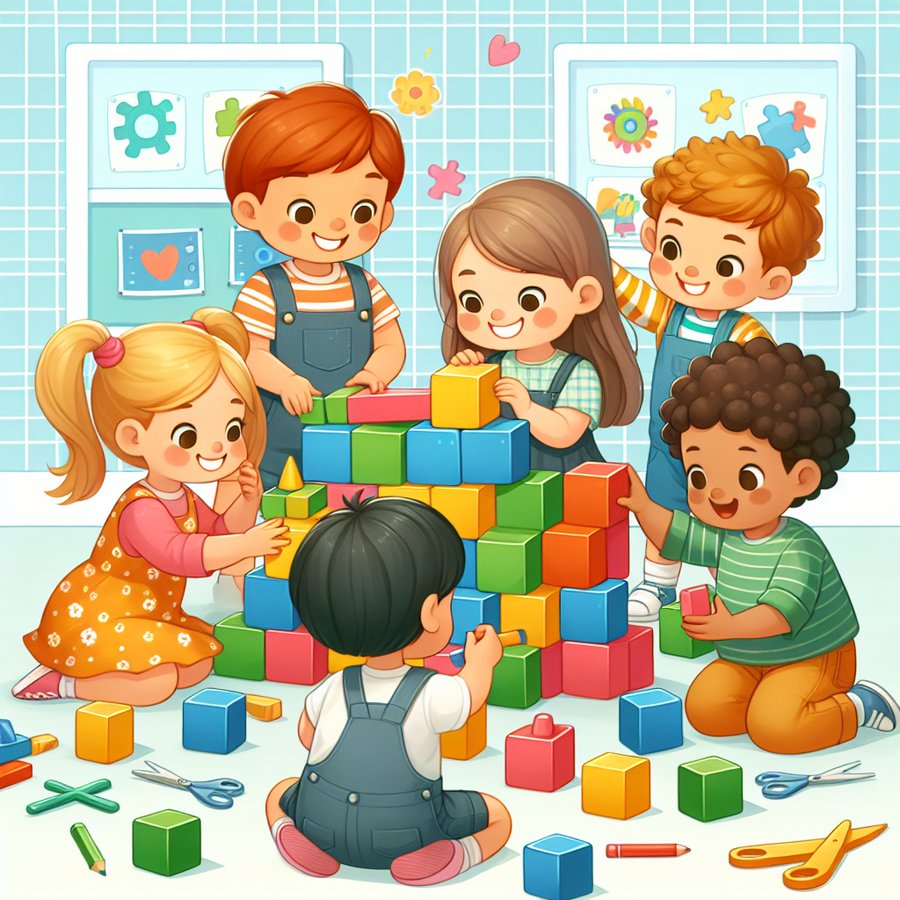Encouraging problem-solving skills in early childhood is a crucial aspect of developmental support that parents and educators can provide. From the moment children start interacting with their environment, they begin to learn, adapt, and solve problems. This article explores effective strategies and activities that can enhance problem-solving abilities in young children, setting a strong foundation for their future learning and life challenges.
The Importance of Problem-Solving Skills in Early Childhood
Problem-solving skills are essential for children as they navigate through early childhood. These skills not only contribute to their cognitive development but also play a significant role in their social and emotional growth. By facing and overcoming challenges, children learn resilience, creativity, and the ability to think critically. Moreover, encouraging problem-solving from a young age prepares children for academic success and equips them with the tools needed to handle complex situations in the future.
Research indicates that children who are encouraged to solve problems independently develop a sense of autonomy and confidence. Engaging in problem-solving activities also enhances their analytical skills and fosters a love for learning. It’s important for parents and educators to create an environment that supports and rewards creative thinking and perseverance.
Encouraging Problem-Solving Skills in Early Childhood
Encouraging problem-solving skills in early childhood involves introducing activities that are both challenging and enjoyable. A balance between guided learning and independent exploration is key to stimulating young minds. For example, enhancing problem-solving skills through play is an effective method that allows children to learn through trial and error in a low-pressure environment.
Simple puzzles, building blocks, and sorting games are great tools for developing problem-solving skills. These activities encourage children to think logically and develop strategies for achieving their goals. Additionally, asking open-ended questions and posing hypothetical scenarios can spark children’s imagination and analytical thinking. Providing support and encouragement, while also allowing room for mistakes, is crucial in building their confidence and problem-solving abilities.
Practical Activities to Strengthen Problem-Solving Skills
To effectively encourage problem-solving skills in young learners, it is important to incorporate a variety of activities that cater to different aspects of problem-solving. For instance, sensory play can enhance observational skills and the ability to make predictions based on sensory information. Similarly, engaging in outdoor play promotes spatial awareness and physical problem-solving through navigation and interaction with different terrains.
Collaborative games and activities encourage teamwork and the development of social problem-solving skills. By working together, children learn to communicate their ideas, listen to others, and negotiate solutions. This not only enhances their problem-solving skills but also their ability to work well with others. Additionally, technology, when used appropriately, can offer interactive problem-solving opportunities. Educational apps and games designed for young children can reinforce cognitive skills and critical thinking.
Encouraging problem-solving skills in early childhood is a multifaceted approach that involves a blend of play, exploration, and guided learning. By fostering these skills, parents and educators can help children develop the foundation necessary for lifelong learning and success. Remember, the goal is not to eliminate challenges from children’s lives but to equip them with the tools and confidence to face and overcome them.
For more insights and strategies on nurturing young minds, explore our comprehensive guide on encouraging problem-solving skills in early childhood.













